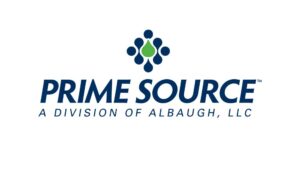Back in 2013, Blake Walker was in the process of taking ClubCorp public. The Dallas-based private golf club company had just reported annual revenue of over $754 million. While sorting through the due diligence and pricing, Walker, who was then the chief acquisitions and development officer, noticed a significant decrease in the industry’s default rate. Hec saw a unique opportunity to leverage around $3.5 billion of upcoming debt maturities. This ignited a spark in the Southern Methodist University grad’s mind.
“I think I want to walk away,” he told his wife, Karen, during a neighborhood walk with their dog. “And, yes, give up all my equity… I want to create a startup.”
It wasn’t Walker’s first venture into entrepreneurship, nor his first departure from ClubCorp to pursue it. A decade earlier, he had left after serving as its senior vice president of acquisitions to start Pegasus Golf Partners, a golf investment company backed by private equity firm Carlyle Group, which grew to a portfolio of 14 middle-market golf courses. However, in 2009, Walker scaled back his work at Pegasus and returned to ClubCorp, seeing a clear succession plan leading him to the C-Suite and an imminent liquidity event for the brand.
Leaving amidst an IPO this time would be different. Walker planned to start his new venture not with an investment thesis but an operational one. Instead of focusing on a single asset class—as with Pegasus’s middle-market clubs or ClubCorp’s high-end private clubs (now rebranded as Invited)—he intended to create a wide-ranging ecosystem of golf assets from entry-level to high-end daily fee and private clubs.
“Golf felt very fragmented to me,” Walker explained, who Golf Inc. named as the sixth-most influential person in the sport in 2021. “Golf was either high-equity private clubs or municipal courses without much in between. I thought, if we could create a platform that included everything from entry-level daily fee courses to high-end daily fee courses and entry-level to high-end private clubs in every major U.S. metropolitan area, we could cater to a much larger consumer segment.”

It turned out to be a smart move. Today, Arcis Golf, which stands on four pillars: health and wellness, experiential dining, lifetime sports, and arts and entertainment, owns and manages about 70 courses across the United States, employing 7,000 people. Supported by private equity firms Fortress Investment Group and Atairos, with a combined asset base exceeding $50 billion, Arcis clubs range from $30 daily fee courses to private clubs with initiation costs as high as $90,000 and monthly fees of $1,000.
In North Texas, Arcis manages Lantana Golf Club, Cowboys Golf Club, Gentle Creek Country Club, Bear Creek Golf Club, among others. Recently, it acquired Champions Retreat in Augusta, Georgia, and Grayhawk Golf Club in Scottsdale, known for hosting NCAA D1 National Championships from 2021 to 2023. “We are interested in hosting a tour event at Grayhawk,” Walker said.
Arcis Golf is second only to Invited in size in the U.S. Commenting on Arcis Golf’s institutional value, estimated at around $1.5 billion with potential growth to $2 billion to $2.5 billion, national golf broker Steve Ekovich said, “I don’t know if they’ll surpass Invited’s golf course business, but they have the potential.”
Craig Stamm, a private equity veteran and CEO of IT solutions firm Zyston, expressed more confidence. “Arcis will not only surpass Invited but become the largest player in the golf space,” he stated.

“What’s the worst thing that could happen?” Karen asked. “If you fail, you can get another job. If it becomes too much, just let me know, and we’ll find another path.” With her assurance, Walker traveled across the country to pitch his concept to respected private equity firms and investors. He visited places like L.A., Aspen, and New York City, seeking feedback.
“A part of me expected them to say, ‘Are you crazy? You’re working for a great company about to go public; why leave?’” Walker recalled. But Fortress Investment Group didn’t say that. Despite Arcis Golf being just an idea without revenue or external funding, they decided to back it.
“That’s rare; it’s unheard of except for Blake,” Ekovich remarked. Stamm added, “Many people have billion-dollar ideas, but few can secure substantial investment for their vision. Blake is one of those few.”
As CEO, Walker chose not to draw a salary for the first six years, balancing family life and a mortgage while relying on the equity provided by Arcis Golf’s backers. “We agreed on a set period to operate this way as a family; my wife’s support and my financial sponsors were unprecedented,” he noted.
Walker’s first acquisition in 2013 included three clubs: The Club at Pradera and The Pinery Country Club in Colorado, and The Club at Snoqualmie Ridge in Washington. Within three months, he acquired three more clubs. The big move came in September 2014, when Arcis Golf acquired CNL Lifestyle’s portfolio of 46 golf courses for $320 million. This portfolio largely became the foundation for Arcis Golf, despite Walker divesting nine of those properties.
“My rule is if it takes more than one mode of transportation to get to a city or it has fewer than two pro teams, I’m probably not interested,” Walker said. The equity from divested courses was reinvested to build their subscription model.
According to Ekovich, the CNL acquisition was pivotal for Arcis Golf. “To land such a portfolio soon after starting is incredible,” he said. “Blake thinks ahead—while others see through a windshield, he sees through binoculars.”
Arcis Golf’s subscription model distinguishes it from other owners and operators. Across its key markets—L.A., Chicago, Dallas, Phoenix, and Las Vegas—the company built a modern membership that bridges the middle-market gap in golf. Instead of six-figure memberships, Arcis offers a $55 or $75 monthly fee with no initiation fee for regional course access. For example, in Dallas, the Arcis Players’ Prime package ($75/month) offers discounted tee times, advanced booking, unlimited range balls, weekly clinics, and preferred event rates. Subscribers can eventually upgrade to private memberships, gaining access to Gentle Creek Country Club and Lantana Golf Club. Of Arcis Golf’s 35,000 national subscribers, about 7,000 are in North Texas.
Currently, Arcis is focusing on enhancing existing properties rather than new acquisitions. Renovations are underway at clubs like Cowboys Golf Club, which will serve as a model for future upgrades. Plans include installing golf simulators, putting courses, and converting practice areas to themed fields with advanced shot-tracking tech. “We will roll out this concept to major metro areas where we own a course,” Walker said.
Arcis Golf is also enhancing food and beverage offerings, health and wellness programs, and event schedules. They are also eyeing social club acquisitions and exploring how these could fit with golf courses. Additionally, Arcis is pursuing more tour events, with several clubs already hosting them.
The recent surge in golf’s popularity supports Arcis’s prospects. In 2019, 108 million Americans engaged with golf in some form, a number that has risen to 123 million. In 2023 alone, more than 3.4 million people played their first round of golf.
Ekovich predicts continued growth in fees and membership costs due to high demand. “The future looks bright for golf,” he said. “Golf is cool again.”
Over the next five years, Walker aims to double Arcis’s size, focusing not just on expanding the portfolio but on doubling revenue, cash flow, and ancillary business size. “We plan to embrace innovation while honoring golf’s tradition,” he said.
Ekovich commended Walker’s visionary approach and accomplishments. “Arcis is unique,” he said, “and Blake knows how to take big swings.”



























